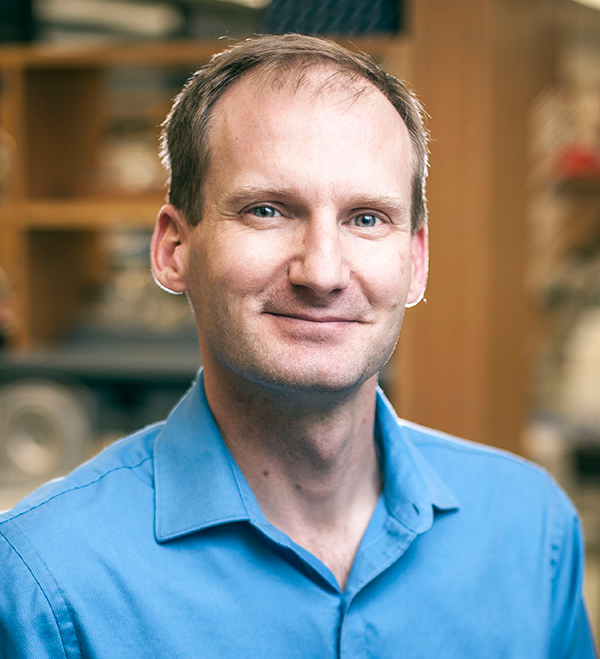David Cortez, the Richard N. Armstrong Ph.D. Professor of Innovation in Biochemistry and chair of biochemistry, won The Hans Neurath Award, a 2024 Protein Society Award, for recent contributions of exceptional merit to basic protein research.

Cortez, a world-renowned leader in DNA damage response and repair mechanisms and the pathophysiology of cancer, developed and applied highly creative technological approaches to identify and characterize proteins involved in DNA and genome maintenance.
“I am grateful for this honor, my colleagues that supported the nomination, and The Protein Society for sponsoring this award and supporting investigators around the world,” Cortez said.
The Protein Society is the premier international society dedicated to supporting protein research. The award will be conferred at the 38th Annual Symposium this July in Vancouver, Canada.
“Let me just say how truly thrilled I am about this! The Neurath Award is the oldest of the Protein Society Awards and very distinguished. Previous winners include Jennifer Doudna, Rod MacKinnon, Chris Dobson, Janet Thornton, and David Baker,” said Charles Sanders, the Aileen M. Lange & Annie Mary Lyle Professor of Cardiovascular Research, Vice Dean of Basic Sciences, and professor of biochemistry. “David Cortez is one of the best protein scientists I know and holds his own even among this amazing group.” Sanders, who is also President-Past of The Protein Society, had no role in the award nomination, discussion, or selection.
At the School of Medicine Basic Sciences, the Cortez lab is dedicated to understanding the mechanisms that maintain genome integrity and promote the complete and accurate replication of the genome.
Current projects in the lab include:
- Identification and characterization of new replication stress response proteins
- Mechanistic studies of replication-coupled DNA repair and damage tolerance
- Analysis of DNA damage signaling pathways controlled by the ATR kinase
- Development of therapeutic approaches against cancer that target the DNA damage response
The lab uses a multi-disciplinary approach to conduct their work, including genetics, biochemistry, cell biology, proteomics, and structural biology. The lab is part of the Genome Maintenance Program within the Vanderbilt-Ingram Cancer Center, the Vanderbilt Institute of Chemical Biology, and the Department of Biochemistry.